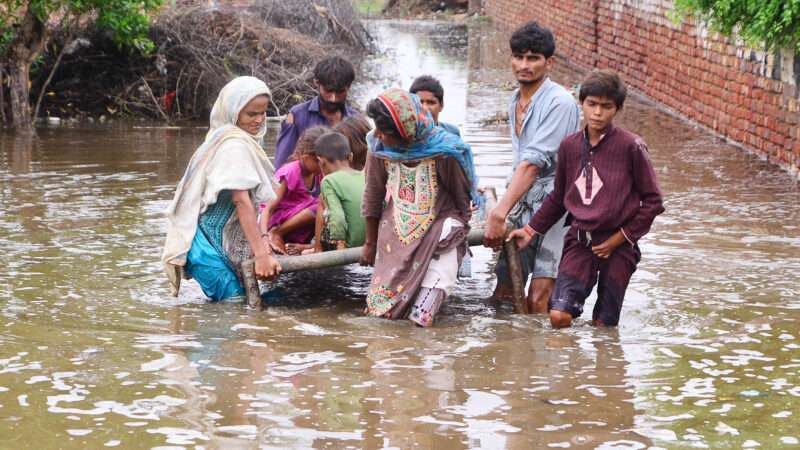
Sharm-el-Sheikh, Egypt—COP27 is all about the money. It has always been thus at the annual Conferences of the Parties (COP) of the United Nations Framework Convention on Climate Change. Way back in 2007, at COP13 in Bali, activists argued that rich countries must hand over $600 billion annually to help poor countries develop economically and adapt to man-made climate change. Even as COP15 in Copenhagen collapsed in 2009, rich countries reluctantly promised to "mobilize" $100 billion annually for poor countries by 2020. That goal is now expected to be reached next year, three years late.
Initially, the goal was to help poor countries become more resilient. The funding was aimed at mitigating and adapting to climate change by adopting low-carbon energy generation technologies and by building infrastructure strong enough to withstand dangerous weather.
But at COP19, held in Warsaw in 2013, the demands moved beyond mere mitigation and adaptation financing to what amounts to climate change reparations. Poor countries wanted the United Nations (U.N.) to create a new bureaucratic mechanism to collect and distribute billions, to compensate them for "loss and damage" from climate change. Not surprisingly, the rich countries did not like the idea of an international agency empowered to make them legally liable for weather damage around the world.
Nevertheless, the concept of "loss and damage" climate reparations was officially incorporated into the Paris Climate Change Agreement adopted in 2015. Recognizing that such U.N. agreements tend to metastasize into international shakedown bureaucracies, rich countries initially resisted the provision. But the poor countries swore that the loss and damage section did not impose liability on rich countries.
Well, that was Paris then. This is Egypt now.
At COP27, the "G77" bloc—130 poorer countries, led by Pakistan—got discussion of loss and damage on this year's agenda. They ultimately aim at the creation of a dedicated Loss and Damage Finance Facility under the auspices of the U.N.
"It's a well-known fact that the United States and many other countries will not establish…some sort of legal structure that is tied to compensation or liability. That's just not happening," said U.S. Climate Change Special Envoy John Kerry at a press conference on Saturday.
So how much money is at stake? Initial estimates of tens of billions annually have now ballooned to new estimates of trillions per year by 2030. Poor countries correctly argue that most of the extra carbon dioxide in the atmosphere that is warming the planet derives from fossil fuels burned by rich countries as they grew wealthier over the past two centuries. And poor people living in poor countries are certainly more vulnerable to the weather extremes exacerbated by climate change. "The foisting of some cost onto an unwilling third party—what is known as a 'negative externality'—has long been a concern of policymakers and economists, and climate change will certainly have future costs," observes the economist David Levine in the Spring 2022 issue of Regulation. As a general principle of law and morality, if someone imposes a harm involuntarily on another person, they should compensate the injured party for it.
But there's a huge problem here. The proposed system would channel funds from rich-country taxpayers to poor-country governments. And these governments suffer from pervasive corruption.
In its latest analysis, Transparency International reports that the average corruption perception score index for sub-Saharan countries is 33 out of a possible score of 100. G77 leader Pakistan scores 28. One reason people living in poor countries remain especially vulnerable to climate change is because government thievery and incompetence have held back the economic growth that would enable them to create the wealth with which to defend themselves. Even if rich countries were willing to pony up tens of billions in climate reparations, very little of the money would likely reach the citizens who are suffering the brunt of weather disasters.
Note: I will be reporting from COP27 for the rest of this week.
The post Climate Reparations and the Problem of Pervasive Corruption appeared first on Reason.com.







